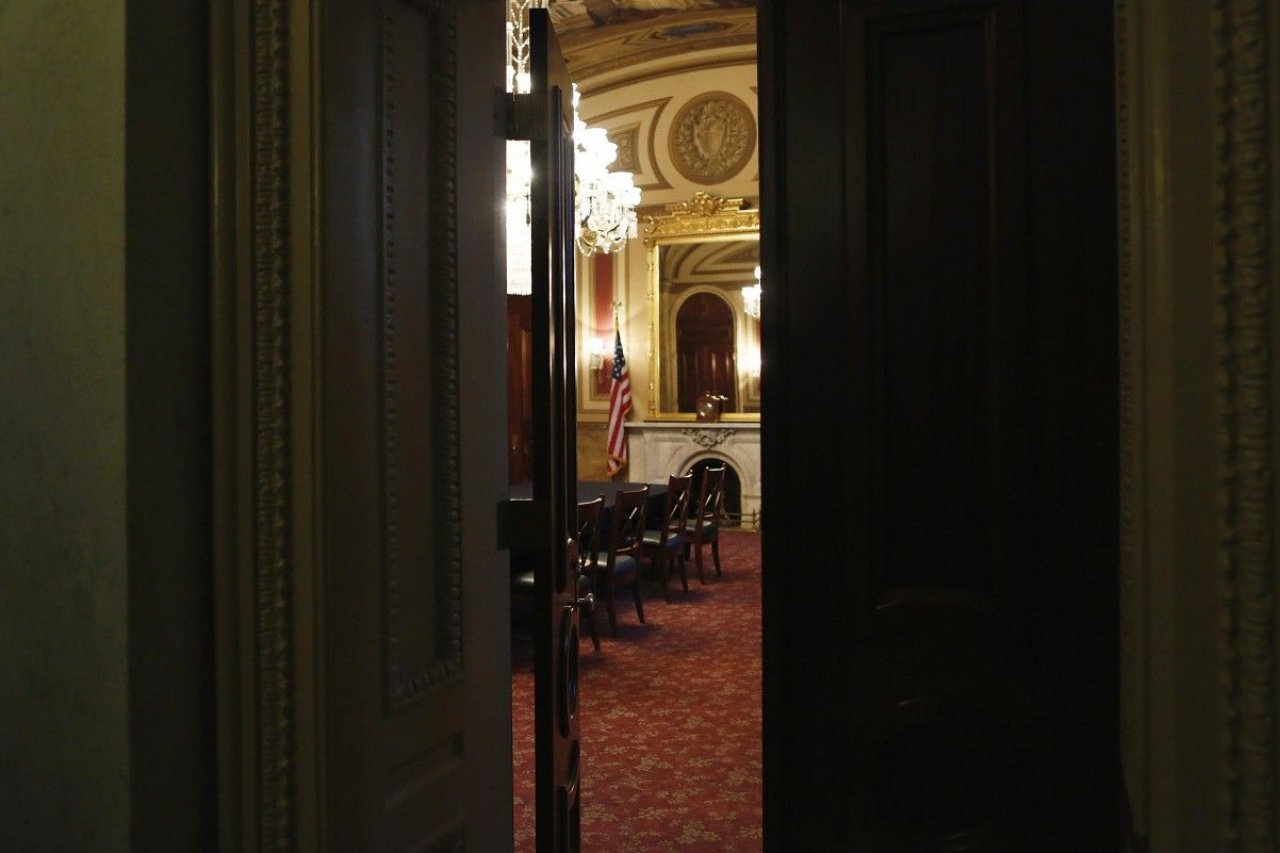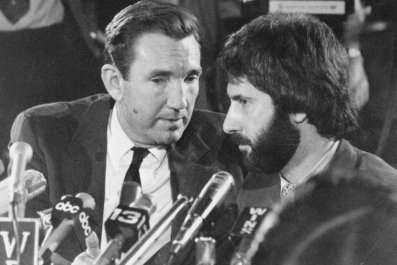The first rule of congressional budget negotiations: Do not talk about the budget negotiations.
"I have no idea what's going on," said Representative Jim McDermott, D-Washington. "I'm on the Budget Committee and nobody has talked to me about anything."
Senate and House negotiators, led by the two budget committees' chairs, Senator Patty Murray, D-Washington, and Representative Paul Ryan, R-Wisconsin, have until December 13 to hammer out a budget to fund the government after mid-January. Talks continue, but details of a potential agreement are scarce.
Both chambers come to the talks with a budget, but at different overall spending levels. The Senate passed a budget set at $1.058 trillion, noticeably above the spending level set by sequestration, while the House budget maintains sequester level spending for 2014, suggesting a budget of $967 billion.
If negotiators between the two can compromise on a level of spending, budget appropriators in the House and Senate can set to work allocating how that money will be spent. So how close are they to a common number?
That brings us to the second rule of budget negotiations: You do not talk about the budget negotiations.
"I think I'll leave it to the chairmen to talk about that," Representative Tom Cole, R-Oklahoma, who is part of the House negotiating team, told reporters huddled around him on Monday evening, looking for clues. Even though he said nothing, they are lucky he is talking to them at all.
In addition to an overall spending number, negotiators must decide on how to alleviate the automatic spending cuts that threaten both defense programs - about which the military is complaining long and hard - and domestic priorities - like Head Start, Meals on Wheels, medical research, and infrastructure spending.
How can both sides offset these painful sequester cuts while keeping both Democrats and Republicans at the negotiating table?
"I don't want to get into the details of a deal," Cole said. "I can, but I'm not going to."
So we are left with vague reports coming from House and Senate aides, quoted in Washington rags as anonymous sources. The reports go something like this: Ryan and Murray are looking at a deal that will replace the sequester cuts for two years and set the top-line budget number for the fiscal years 2014 and 2015, with sequester offsets coming from a combination of cuts and revenues.
Because Republicans are dead set against raising taxes - even by closing loopholes for wealthy Americans or corporations - the revenue is likely to come from other places, such as higher fees for airport security, the auctioning of the broadband spectrum, and cutting back contributions to federal employees' retirement benefits.
"I think that there's certainly room for optimism," said one Democratic aide who declined to discuss details. "But there's nothing done yet, and this could certainly all still fall apart."
The mystery surrounding the budget talks, however, is actually an indication that negotiators still think a deal is possible.
"I'm blissfully ignorant," said Representative James Lankford R-Oklahoma, the fifth-ranking Republican in the House, calling the ominous quiet a "good sign." Even so, he pegged the chances for reaching a deal at no more than 50 percent.
"They're not trying to fight it out publicly," he said. "You can talk about hard issues if everything stays quiet."
Reading the tea leaves, there are troubling signs from within Congress as well. On Tuesday, top lawmakers in the House - the ones high enough to be privy to the negotiations - lashed out at the opposite party for refusing to agree to a deal. Republicans have made "very serious offers, but we can't get Senate Democrats to say 'yes,' " Speaker John Boehner, R-Ohio, said of the secret negotiations.
Meanwhile, Minority Whip Steny Hoyer, D-Maryland, said talk of the House passing a short-term spending bill, called a continuing resolution, is "another indication" of Republicans "walking away from getting an agreement."
Whether these accusations refer to an actual impasse in negotiations or are simply insurance in case talks go south remains to be seen.
But the best hope for a deal is that both sides want a deal. Politically, in fact, they both need one.
"I think there's strong political incentive here to reach a deal," Cole said, noting that both parties have been in the doldrums in recent months. "We're coming off the shutdown; they're coming off the rollout of Obamacare. I think probably each side needs a success."
A small-scale deal like the one beginning to appear in press reports is the kind that helps both sides achieve their goals. Republicans don't want failed negotiations to turn attention away from the rollout of the new health-care law and back toward evidence of their intransigence. Meanwhile, GOP defense hawks want to avoid the drastic $21 billion in defense cuts that will kick in on January 15 if no deal is reached.
Democrats also want to avoid the sequester cuts, which are bound to further hurt the ailing economy and increase the number of jobless.
Still, not everyone in the Republican camp wants a deal. The most conservative Republicans in the House don't want to raise the spending level above $967 billion, the 2014 budget number prescribed by the 2011 Budget Control Act.
Unless Democrats agree to hefty cuts to entitlement programs, a radical solution which is not on the table, conservatives like Representative Steve King, R-Iowa, one of the most prominent Tea Party members, would prefer the drastic sequester cuts to cutting a deal. "Sequestration is the only tool we have right now to reduce government spending," King said, adding he won't support a deal with new revenue to offset the automatic cuts.
So Republicans still need to do some soul searching to see how many will vote for a less-than-perfect deal. Lankford thinks his caucus can be more flexible than King and vote for a budget above $967 billion "as long as the deficit reduction is the same or greater." That's a vote that could put Republican members at odds with powerful, outside conservative groups and their Steve King-style colleagues.
At the center of it all is Ryan, who made a name for himself by creating entitlement-slashing budgets that were unacceptable to Democrats. The question now is, does he want to be a dealmaker, and even if he wants to, does he have enough sway to line up a majority of his caucus behind a deal?
"Paul Ryan, I think, faces this sort of existential moment," said Representative Gerry Connolly, D-Virginia. "Do you want to evolve from an ideological panegyrist, an author of utterly impractical budgets that make conservative hearts nonetheless go pitty-pat and excite the base? Or do you actually want to be a legislator who actually gets something done?
"If he goes the latter route, I think he will make a mark in this place because it's so unusual on their side of the aisle - actually getting something done, actually authoring legislation that might pass. This is a moment of truth for him."
McDermott may have no idea what is happening or what will happen in the coming weeks. But in the long term, he says, he has faith that voters will demand that Congress stop fighting and fund the important things like education, infrastructure, and research.
"You can always trust the Americans to do the right thing," McDermott said, recalling the words of Winston Churchill. After a pause, he finished the famous line: "After they've tried everything else."

























